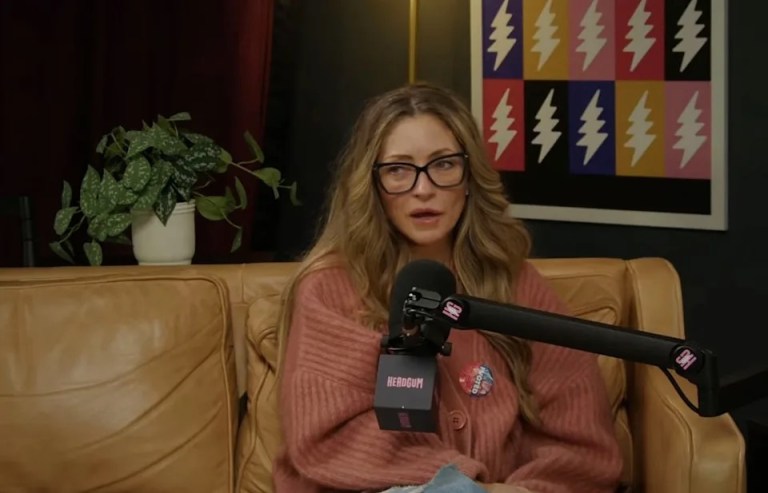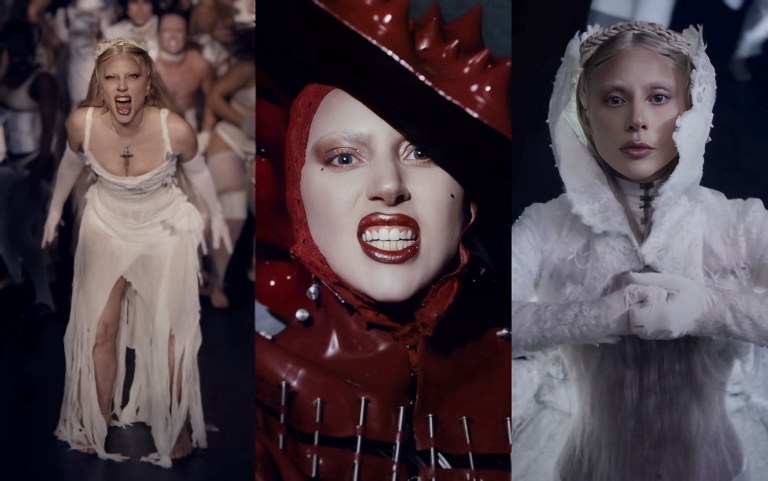
What It’s Like Growing Up With A Mentally Ill Mother

What was it like growing up with a mentally ill mother? In a word?
Shame.
Or at least that’s how I perceived everyone around me treated the issue, until eventually; I too learned to treat it so.
No one talked about it and everyone on her side of the family, which included ten brothers and sisters, ignored it. They treated her, and us through her, as something reprehensible and distasteful. We were always the oddballs during any family gathering and the truth of my mother’s condition was always avoided or covered up.
My mother was a very accomplished woman when she married my dad in 1985. She had graduated nursing school with honors and landed a supervisory nursing position at Tucson Medical Center in Tucson, Arizona; she was making good money and was on her way to a long and productive career doing something she loved. She was smart, bright, and beautiful. Everyone loved her.
Two years after she and my father were married, I was born, and I’m the only one of her three children (I have two younger sisters) who remembers what she was like before she became “sick.” And I honestly don’t remember very much. She worked a lot, graveyard shifts and the like, but I do remember her coming in after a long shift, before the sun had risen, and kissing me on the cheek and smoothing back my hair. I can recall long walks hand-in-hand and visiting adoring relatives where my mom was always the life of the party and I was the beloved niece/granddaughter.
I was seven years old when my littlest sister was born prematurely after a very difficult pregnancy, and it was obvious from the start that my mother was not the same person. She was withdrawn, angry, depressed, and emotionally detached. Those first few years she spent much of her time in bed and I was left to supervise my two sisters (3ish and 1ish) while my dad worked two jobs to make up for the sudden and devastating loss of my mom’s paycheck. She would never work again.
I honestly don’t remember much of those years except the day the firemen came to our house and broke down the bedroom door. They found my mother inside the bathroom unresponsive. She had ingested a cocktail of the many pills she was taking and was rushed to the hospital. I can’t remember who called the police, if my dad was home or maybe a neighbor was involved, but things changed a little after that. She was revived in the ambulance and spent some time in the hospital while my sisters and I were sent to stay with relatives.
My mom then sought real treatment and was diagnosed with a largely misunderstood disease called Chronic Fatigue Syndrome as well as fibromyalgia which contributed to her constant tiredness and her never-ending muscle pain. This was alongside her violent mood swings that would go basically undiagnosed for most of my life; brushed off by over a dozen different doctors as simple ‘hormonal imbalances.’ They even went so far to unnecessarily remove her uterus which nearly killed her as her surgeon unintentionally ripped out one of her ovaries. She was around thirty-three years old. She was finally, just five years ago, diagnosed with bipolar schizophrenia.
My dad tried to protect us from it for the most part. He took up the parenting reins and he is to this day, and always will be, my hero. My dad is the hardest-working, most patient and understanding person I have ever met, and I’ve strived all of my life to achieve the sort of understanding he has for not only mother, but everyone else. But he is a private man and he isn’t very open with his feelings or the things he struggles with, such as my mother’s illness and her highly erratic mood swings, of which he bore the brunt.
As a little girl it was incredibly traumatizing. My mother went from hysterical weeping in one moment to blind anger the next, throwing and breaking things and locking herself in her room for hours at a time. She never hurt us (aside from the occasional spanking or slap), but her accusations and untoward anger were certainly painful. I did, however, understand that during these uncontrollable fits my mother was not herself. I came to understand early on when my mother was my “mother” and when she was “not my mother.” My sisters, who had never known her any other way, had a harder time understanding.
There were good times, too. Like most mentally ill people, my mother had not only lows but highs as well. These highs could last for years at a time before the inevitable crash. The best of these “up” times was right around the time when I became pregnant (I was 16 and that’s a whoooole other story). Suffice it to say, it was a great period of upheaval for everyone, but prior to that my mom had started cleaning up around the house and making us real meals. As in not Hamburger Helper or Mac ‘n’ Cheese, but real out-of-the-crockpot meals. Trust me, this was a big deal. We went on more trips and did more things together as a family. She even attended a few of my school functions for the first time in many years. That three- or four-year span was one of the happiest periods of my life.
It was hard as I got older not to feel bitter or angry sometimes about her condition, even toward her. My mother had long stopped being a “mother” to me and was more of an unruly child—much like my younger sisters—whom I was required to supervise. I was rarely able to invite friends over, since we never knew what condition she would be in, and I missed out on a lot of social opportunities because my dad needed me to care for her and my two sisters. I grew to view my mother as an embarrassment and a hindrance, just another of many responsibilities my friends and classmates didn’t have. She was typically doped-up on pain meds among other prescriptions (which I’m sure she abused as my dad eventually took to locking them up) and was often slurry in speech and difficult to communicate and reason with. She fell a lot—in her underwear more often than not—and would sometimes do so in front of guests and friends. Even thinking about it now, grown and more understanding, I still feel that ache of embarrassed guilt. She would fall in the shower and be basically lifeless in the tub, and I would have to cover her and try and get her into bed as she struggled against me and said foul, awful things. It became my job to protect my sisters from her, to intercept her fits and shoo them from the room when she went on her rages.
One time in particular, I remember her loading me and my sisters into the family van for my sister’s doctor appointment after school when my dad was still at work. I was 12, my middle sister 9, and the youngest around 6. I knew she wasn’t fit to drive, slurring and shaky, but she was forceful and emotional, growing hostile when I tried to suggest that we just stay home. I can remember her swerving a lot as she drove, which to this day contributes to my issues with allowing other people to drive me places, and eventually she was driving down the wrong way of a divided highway at 80 miles an hour. I remember my sisters screaming and crying and my mom slurring and cursing. I eventually coaxed her to the side of the road. We sat there for a long time with my mom barely coherent until I eventually decided that I would drive us home. I settled my mom into the passenger seat and told my sisters that dad had taken me driving a few times so I knew what I was doing (a total lie) and somehow we made it back home. It was easily the scariest moment of my life and I don’t think I’ve ever fully recounted that tale to anyone since. (Hey, Internet, what’s up?)
I think parts of me hated her—hated that she was no longer the woman from my early childhood, hated that everything in her mind revolved around her and she so rarely saw outside her bubble of misery to focus on anyone else, even her children. I stopped thinking of my mother’s condition as something outside of her control.
I moved away from home at the age of 16 with my now ex-husband. I started a life of my own, I went to college, and I got a few jobs and moved across the country. I felt that I had escaped. It was during that time when my mom hit the lowest of her lows and the protective sister/mother in me aches that I wasn’t there for my sisters. My mom became suicidal again, with wild panic attacks and vicious rants at anyone she came in contact with. My sisters would call me crying, especially the youngest who took my mother’s words and actions very personally, and I tried to be as supportive as I could. My father almost put her in a home. I put off leaving my ex-husband (who had cheated on me several times by then) because I couldn’t bear to burden him with my issues too, living through another year of a toxic relationship. After my father committed her to a state hospital she was finally diagnosed with her condition and given medications that worked for once. Upon my returning home, after I finally left my ex-husband, she was better but still irrational, trying to convince me that she should leave my dad and that she and I could live somewhere together. She was angry with me for a long time for refusing.
I still haven’t, at the age of 25, come to complete terms with her. These days she is more calm and relaxed and more eager to be involved, but I have a hard time letting her in. After 18 years of not really having a mother figure it’s difficult for me to value or even want her opinion, to open up to her about our past experiences even, because I know how ashamed she is, how difficult it is for her to deal with everything she’s done though it was through no fault of her own. My sisters have developed closer relationships with her, for which I am glad. I played the mother role for them for a long time and I’m happy to finally just be “sisters,” but I still can’t look at the woman who gave birth to me and think of her as my “mother.” I love her, I pity her, and I care for her, and I can finally say I am not ashamed of her. But having a mother with mental illness is complicated and painful. I want to strive to strengthen my relationship with her, to tell her that I forgive her because I know she needs to hear it, and I don’t ever want to let anyone make me feel that my mother is an embarrassment.
I am not ashamed. ![]()











